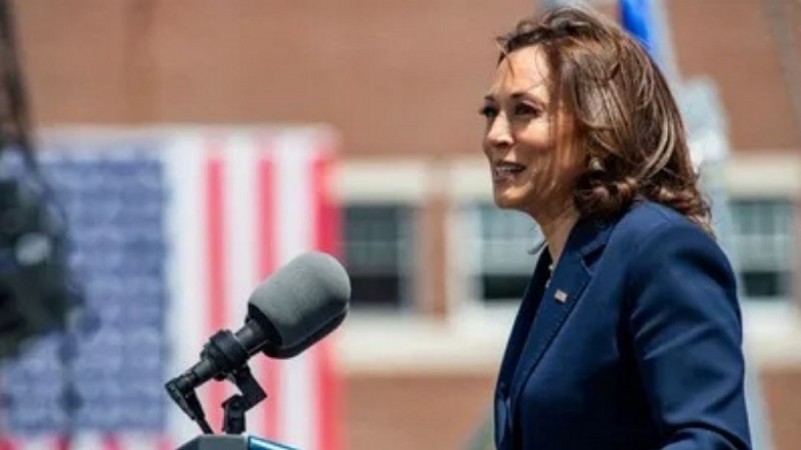
As the Democratic National Convention (DNC) opens its doors in Chicago, a potential rift within the party looms large. Scheduled to begin on Monday, the convention aims to showcase Vice-President Kamala Harris as the party's presidential nominee. However, ongoing protests over the Gaza conflict threaten to overshadow the event, which follows President Joe Biden's sudden withdrawal from the race last month.
The Harris campaign is hoping that the Chicago convention will be a moment of celebration and unity. But with the November election just around the corner—less than 80 days away—there are concerns that internal disagreements over Gaza could impact the Democrats' cohesion.
The convention will feature high-profile appearances from President Biden, former Secretary of State Hillary Clinton, former President Barack Obama, and other influential figures. They will converge at Chicago’s United Center to support Harris and target Republican challenger Donald Trump. Yet, the convention's tone could be affected by the contentious issue of U.S. policy towards Israel and Gaza.
The situation in Gaza has drawn significant international attention. Following an unprecedented attack by Hamas on October 7, which killed around 1,200 people and took 251 hostages, Israel launched a military campaign against the group. The conflict has resulted in over 40,000 deaths, according to Gaza’s Hamas-run health ministry, sparking criticism over civilian casualties.
Harris, who embarked on a bus tour in Western Pennsylvania before heading to Chicago, has not clarified her stance on the Gaza conflict. Her campaign has so far focused on economic proposals, with mounting pressure to provide a detailed policy agenda. Although she has called for a ceasefire and the respectful treatment of protesters, she has not supported a weapons embargo on Israel—a stance some progressives are advocating.
The Democratic primary earlier this year saw over 750,000 voters choose “uncommitted” rather than backing any specific candidate, raising concerns that these voters might abstain or vote third-party. This sentiment, although less prominent now due to excitement around Harris's candidacy, remains influential in key swing states like Michigan.
At the convention, 36 delegates representing the “uncommitted” vote will push for action on Gaza, despite being vastly outnumbered by the 4,500 delegates supporting Harris. These delegates aim to press the campaign and party to adopt policies addressing Gaza, including a ceasefire and arms embargo.
Protests are expected to be a significant feature of the convention week. Organizers have predicted “many thousands” of participants, although initial estimates of up to 100,000 have been revised. A pro-Palestinian demonstration on Sunday drew a few hundred protesters, with more rallies planned.
Harris has received some positive attention from Gaza protesters for her early calls for a ceasefire and critical stance on Israeli actions. However, many expect a clear policy position from her campaign. Protesters are intent on making their voices heard and influencing the party's stance on Gaza.
As President Biden is set to deliver a primetime address, highlighting his achievements and the election’s significance, the DNC will coincide with crucial U.S.-mediated ceasefire talks. Secretary of State Antony Blinken is expected to continue discussions in Cairo, with potential outcomes impacting Harris’s campaign.
Despite the pressure, Harris’s close associates, including former national security adviser Halie Soifer, suggest that no significant policy shift is anticipated. Soifer emphasized that Harris’s views align closely with Biden’s and that changes in policy are unlikely.